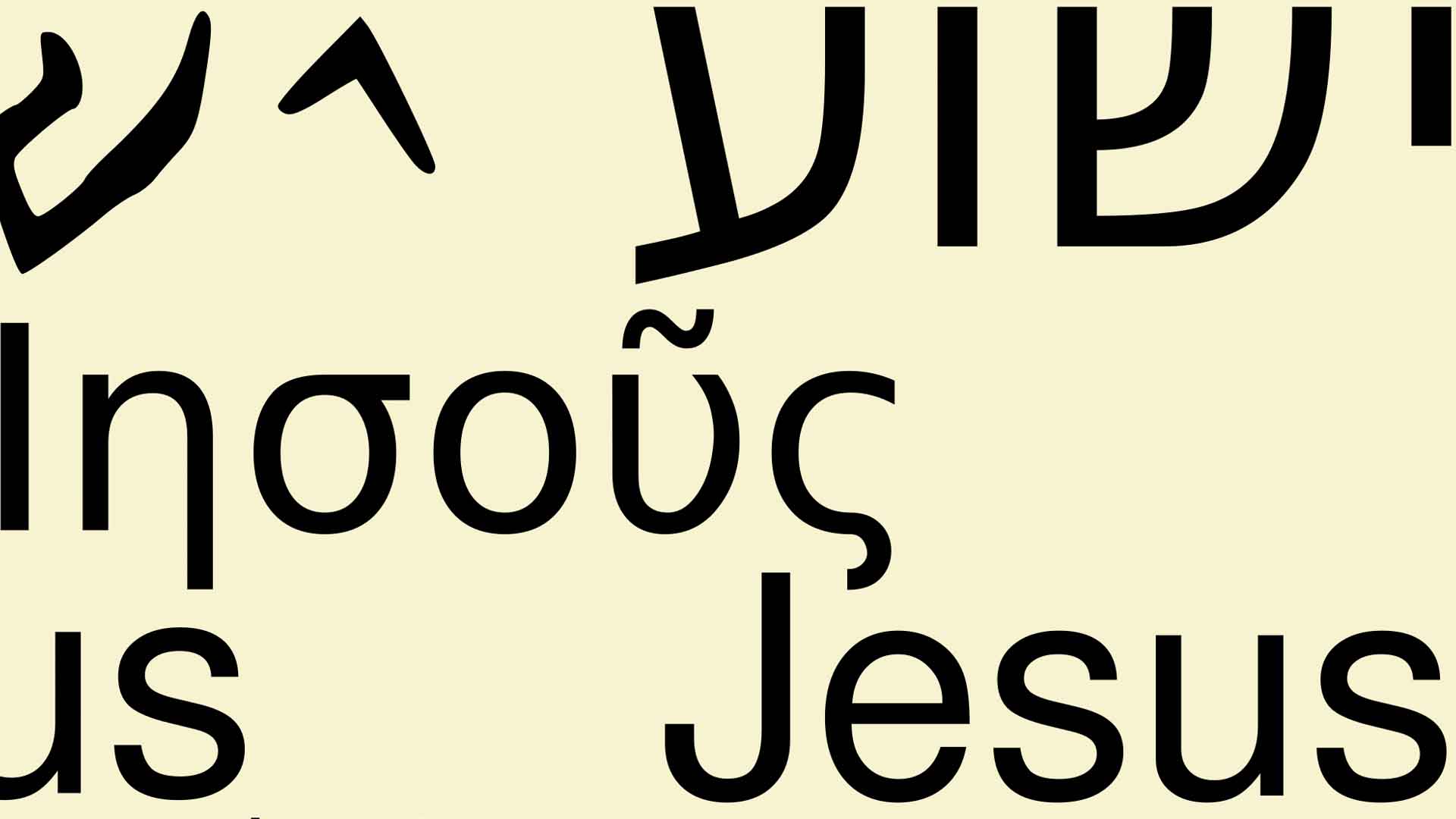What Is Jesus’ Middle Name? The Meaning of the Name Jesus
The name “Jesus Christ” carries more than just religious significance — it’s a linguistic voyage spanning centuries and cultures. Originating from the Hebrew Y’hoshuaʿ, it transformed into Greek Iēsoũs and Latin Iesus, finally becoming Jesus in English.
The discussion about Jesus’ middle name is an intriguing one. Historically, Jesus did not have a middle name. The term “Jesus H. Christ” has been used incorrectly. So, no, “Jesus H. Christ” is not his real name, but it does raise an interesting question — what does the “H” stand for?
The Roots of 'Jesus'
Jesus’ original name, stemming from the Hebrew Y’hoshuaʿ, signifies “Yahweh is Salvation.” This name underwent significant changes: from Hebrew to Greek Iēsoũs, then to Latin Iesus. Each linguistic transition altered its pronunciation and spelling, adapting to cultural contexts.

Source: Canva
This evolution highlights the fluidity of language and how names are not just identifiers but also bearers of history and culture, shaped by the tongues that speak them.
Understanding 'Christ'
“Christ,” contrary to popular belief, isn’t Jesus’ last name but a title derived from Greek Christós and Hebrew māšîaḥ, both meaning “anointed one.” This title historically applied to various figures regarded as divinely anointed, like kings or prophets.

Source: Gerard van Honthorst/Wikipedia
In the case of Jesus, “Christ” signifies his perceived role as the anointed savior in Christian theology, a crucial aspect of his identity in the religious narrative.
The Name in Antiquity
The title of māšîaḥ, or “anointed one,” wasn’t exclusive to Jesus in ancient times. It was a generic title for anyone fulfilling the role of God’s anointed. For instance, Cyrus the Great was also called māšîaḥ in Isaiah 45:1.

Source: William Holman Hunt/Wikipedia
This broader usage in history highlights the versatility and significant range of meanings that titles held in historical and religious texts.
Early Christian Symbols
Early Christians used symbols like the Chi Rho and IHϹ monograms to represent Jesus and Christ. The Chi Rho combines the first two letters of Christós in Greek.

Source: Wikipedia
These symbols were not just religious icons but also clever linguistic abbreviations, showcasing the ingenuity of early Christians in expressing their faith.
Deciphering IHϹ Monogram
The IHϹ monogram, less known than Chi Rho, represents the first three letters of Jesus’ name in Greek: Iota, Eta, and Lunate Sigma. This monogram became pivotal in the development of the phrase “Jesus H. Christ.”

Source: Stevert/Wikipedia
The misinterpretation of its Greek letters as Latin led to the funny yet incorrect insertion of “H” as Jesus’ middle initial.
The Misinterpretation Behind 'Jesus H. Christ'
The phrase “Jesus H. Christ” emerged from a linguistic misunderstanding. Early Americans, unfamiliar with Greek, mistook the IHϹ monogram’s letters for Latin J, H, and C.

Source: Ary Scheffer/Wikipedia
The misinterpretation, combined with a humorous twist of fate, led to the enduring yet incorrect assumption of “H” being Jesus’ middle initial, reflecting how language and culture can intersect in unexpected ways.
Jesus' Real Name and Its Significance
The transition of Jesus’ name from Hebrew Y’hoshuaʿ to Greek and Latin versions highlights its cultural journey. This evolution underscores the significance of names in connecting and influencing different cultures and eras.

Source: James Tissot/Wikipedia
Understanding Jesus’ real name provides insight into the historical and linguistic connections that shape religious narratives.
What Does 'Christ' Really Mean?
The word “Christ” comes from the Greek word χριστός (chrīstós), meaning “anointed one,” which then became a pronoun for Jesus.

Source: Heinrich Hofmann/Wikipedia
As a title meaning “anointed one,” this word played a crucial role in biblical narratives, symbolizing divine selection and purpose. This deeper understanding of “Christ” enriches our comprehension of religious texts and traditions.
The Enigma of 'H' in 'Jesus H. Christ'
From movies to internet memes, the phrase “Jesus H. Christ” has endured as a comedic jab and a common cultural reference. While it may not be Jesus’ real name, its origins highlight how language and culture can intersect in unexpected ways.

Source: Jean-Léon Gérôme/Wikipedia
Despite its incorrect usage, “H” adds an enigmatic element to the already complex and fascinating discussion about Jesus’ name.
Cultural Impact of the Name 'Jesus'
The name “Jesus” and the phrase “Jesus H. Christ” have permeated languages and cultures, evolving beyond religious contexts. They reflect the dynamic nature of language and how it can capture and convey cultural, historical, and religious nuances.

Source: Juan de Juanes/Wikipedia
These terms illustrate the power of names and phrases to transcend their original contexts and become embedded in everyday language.
More Than Just a Name
The journey of the name “Jesus Christ” from its ancient origins to modern usage highlights the enduring power of language and culture. Far more than mere identifiers, names like “Jesus” and titles like “Christ” encapsulate rich histories and meanings, resonating across time and cultures.

Source: Alexander Andreyevich Ivanov/Wikipedia
Their evolution and impact remind us of the profound connections between language, history, and society.
